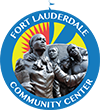From Passion to True Love
The BringBackHope Non-Governmental Organization (NGO) and Fort Lauderdale Community Center (FLCC) in Ghana are actively engaged in the implementation of multiple ongoing projects.
Helping to implementing Uplifting Our Youth through its new partnership with the University of Ghana teaching Microsoft Office to college students and providing certifications for free, and internships for its students.
Kokomoata School Project
Education Budget Brief: Addressing the Needs of Children in Ghana
FLCC-BringBackHope’s program aims to address the needs of children in Ghana based on the Education Budget Brief. The following points outline the plan for implementation:
Phase One:
- Construct a security wall with two entrances
- Install eight solar-powered flood lights and an electrical fence for security
- Employ nine security guards for three shifts: 7am to 3pm, 3pm to 11pm, and 11pm to 7am
- Develop architectural renderings and drawings for property updates
Phase Two:
- Refurbish the old KG space for the front office, accommodating students, parents, and head teachers
- Construct a new two-story building west of the office for 300 students, including two sets of bathrooms
- Clean up the trash pile with daily trash pick-up service
- Drill a borehole for water and install a filtration system
- Remodel and expand bathrooms to ten stalls for boys and girls
- Install a generator for backup power
Phase Three:
- Provide ongoing training and certification for teachers on a monthly basis, with incentives
- Provide ongoing training and certification for teacher assistants
- Implement a new online curriculum for students, including a commercial printer and paper
Phase Four:
- Rehabilitate, paint, and build-out all 46 rooms
- Install 38 air conditioners for improved comfort
- Install 39 security doors for enhanced safety
- Conduct meetings with parents and teachers in the Parent-Teacher Association (PTA) to reinstate weekly dues of 20 cedi per student
- Utilize PTA dues to cover expenses such as school pictures, school supplies, art supplies, uniforms, shoes, book bags, sports equipment, and meals
- Organize classes and training sessions for parents
- Provide Wednesday dinners at the school once a week, including food and clothes giveaways
- Require parents to contribute 80 hours of volunteer time annually
- Arrange sponsorship for parents unable to pay full dues, with the expectation of 160 hours of volunteer time per year
Phase Five:
- Construct a space for a commercial kitchen with a walk-in freezer, utensils, pots, pans, and a baker’s oven
- Provide indoor and outdoor seating for students and staff
- Introduce free breakfast, lunch, and snacks from Monday to Friday
- Establish a school garden for educational and practical purposes
- Develop a playground and basketball court with covered areas to protect against the sun
- Extend school hours to include aftercare from 3pm to 7pm
- Welcome participating PTA parents during aftercare, with dinner served at 6pm
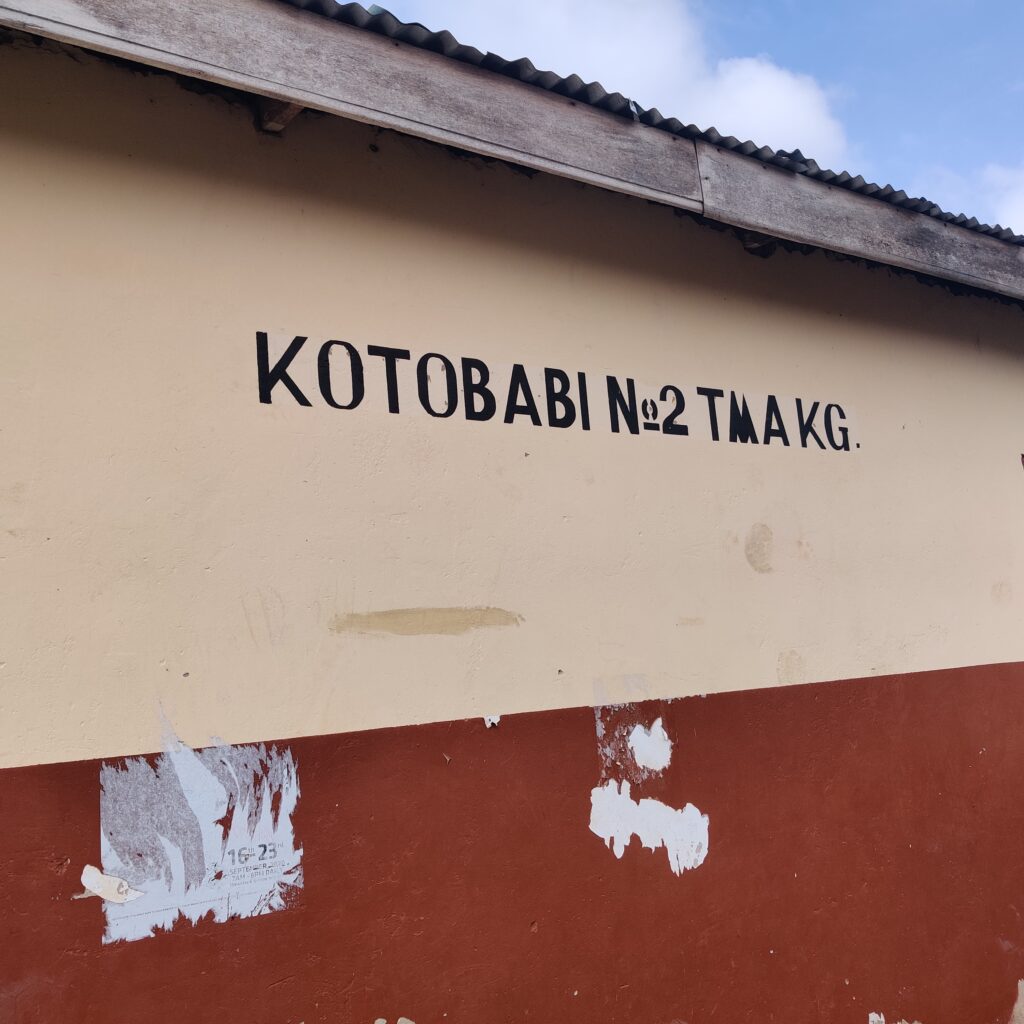
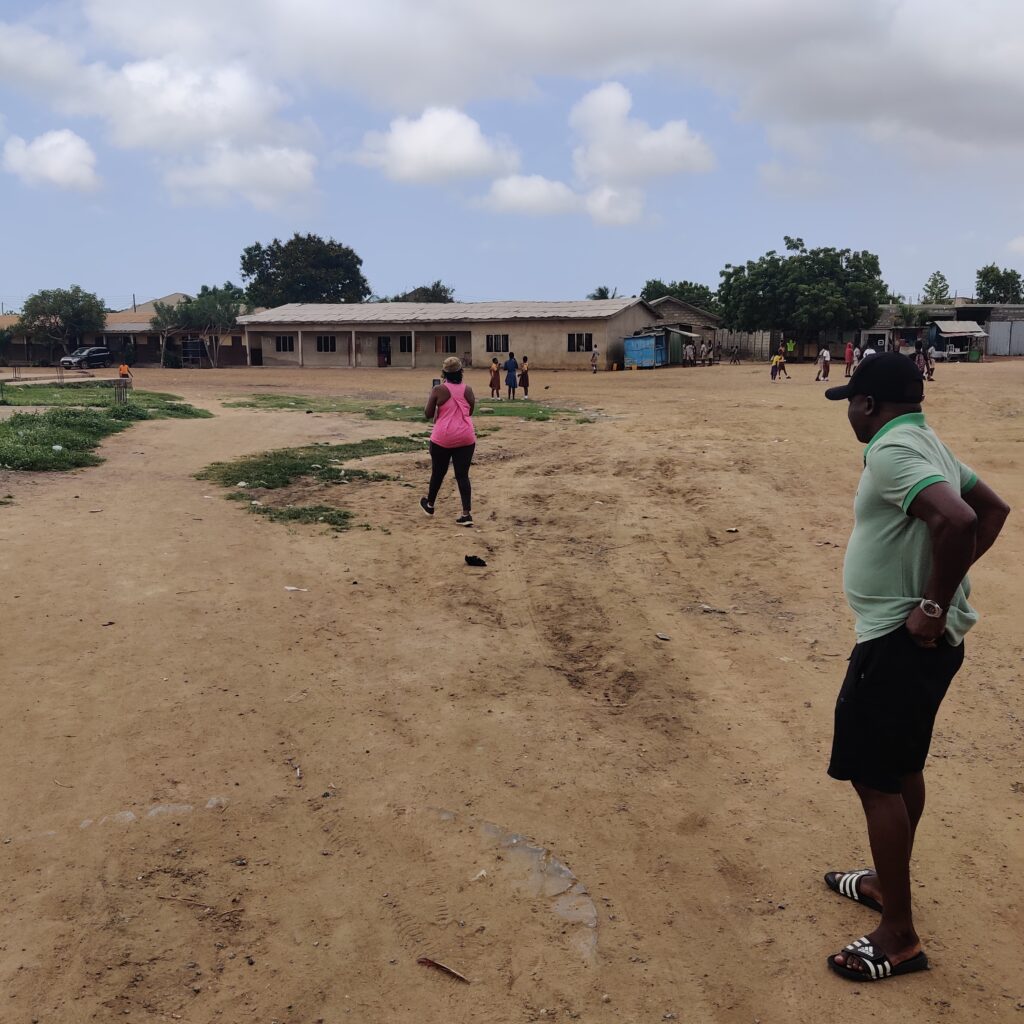
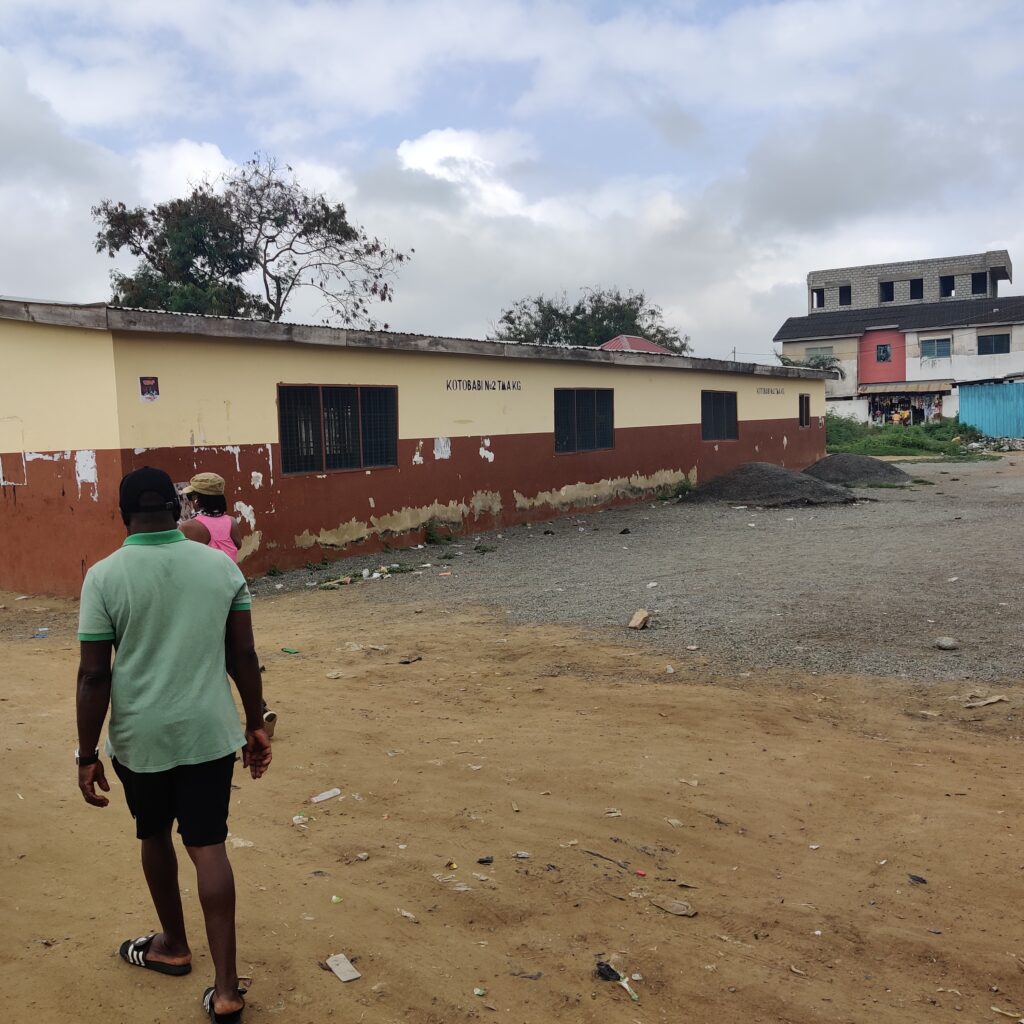
Uplifting Our Youth’s
- We kindly seek your support for Uplifting Our Youth’s latest initiative, a collaboration with the Ghana Public School System. This meaningful partnership focuses on enhancing the educational experience of two elementary schools and one middle school located in Kotobabi No2 Primary A – B and JHS, near Tema. By joining forces, we aim to gather contributions for vital educational resources, infrastructure development, and provide valuable practical technology training for both students and teachers. Your support will make a significant difference in empowering these young minds and nurturing a brighter future.
Adopt-A-Road-NGhana
2. Introducing Adopt-A-Road-NGhana: Transforming Ghana’s Road Infrastructure
We are thrilled to announce a groundbreaking initiative aimed at addressing the current road conditions in Ghana. In collaboration with Ambassador Millie Tucker and her esteemed NGO, The Aaron Mavel Foundation, as well as Ghana’s Highway Authority, we are launching Adopt-A-Road-NGhana. This innovative project allows external support through donations to contribute to the construction and maintenance of new roads across the country.
Through your generous donations, we can tackle various aspects of road development, including labor, equipment, pavement, drainage, and ongoing maintenance costs. In recognition of your contribution, individuals, families, corporations, organizations, and associations will have the opportunity to receive special recognition along their adopted stretch of road for a duration of 5 years.
Your support will be acknowledged through a personalized sign bearing your name, prominently displayed on the adopted road. Additionally, a plaque featuring your name, along with a picture of you or your organization’s logo, will be showcased on all our social media pages, websites of participating nonprofits, and the official government pages of Ghana. Moreover, as a gesture of gratitude, your name will be displayed on billboards throughout the city for an entire month, showcasing your generosity to the public.
By participating in Adopt-A-Road-NGhana, you become an integral part of the solution to improve Ghana’s road infrastructure. Your contribution will enhance transportation, connect communities, and foster economic growth across the country.
Join us today in making a lasting impact on Ghana’s roads. Together, we can create safer, more reliable, and better-maintained transportation networks for the benefit of all Ghanaians.
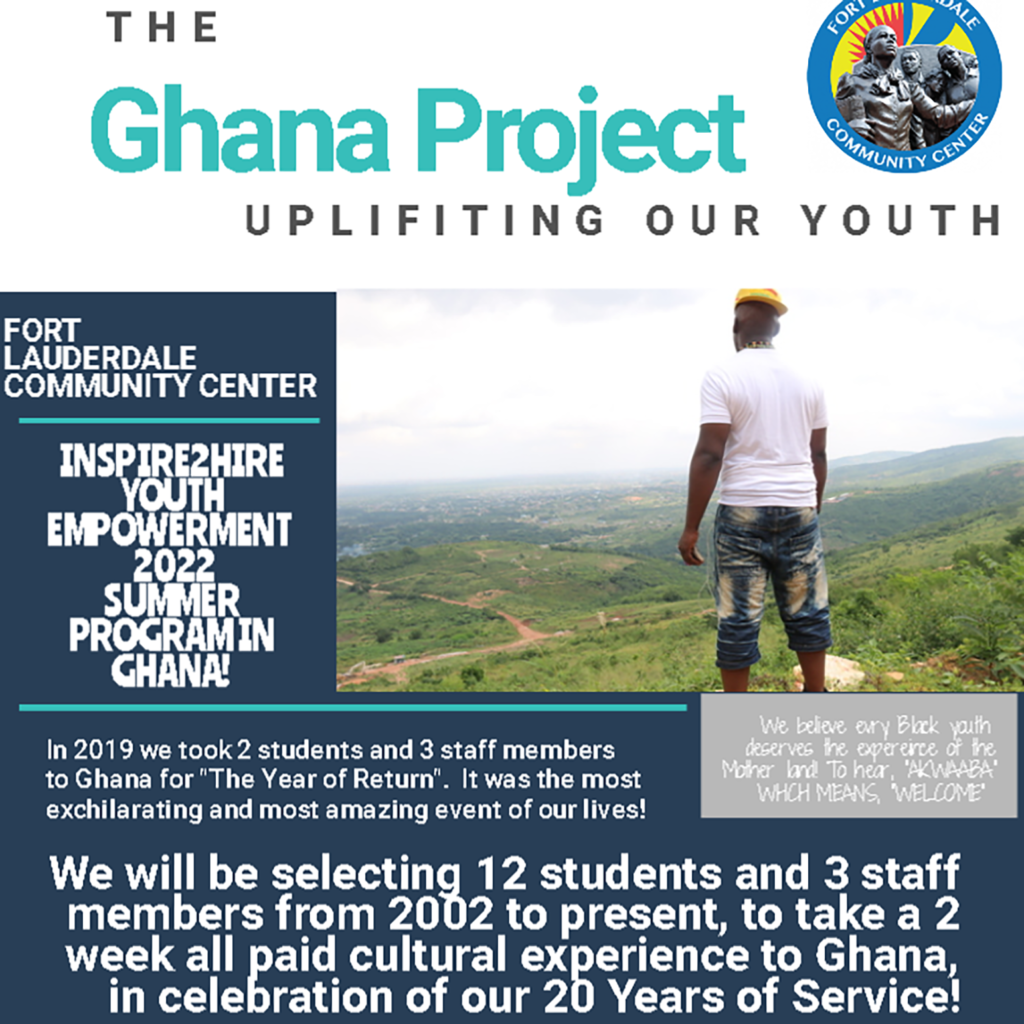
Exploring Roots and Empowering Futures: The Benefits of Young African Americans Visiting Ghana in Africa Introduction: In recent years, an increasing number of young African Americans have been undertaking transformative journeys to the continent of Africa, particularly to Ghana. This emerging trend reflects a desire among African Americans to reconnect with their ancestral heritage, gain a deeper understanding of their roots, and experience the vibrant culture and history of Ghana. This essay explores the numerous benefits that such visits offer to young African Americans, ranging from personal growth and cultural enrichment to fostering a sense of identity and promoting social change. Reconnecting with Ancestral Heritage: Visiting Ghana provides young African Americans with a unique opportunity to reconnect with their ancestral heritage. Ghana, known as the "Gateway to Africa," was a prominent hub for the transatlantic slave trade, with millions of Africans forcibly taken from its shores. By visiting Ghana, African Americans can visit the dungeons of Cape Coast and Elmina, walk the paths of their ancestors, and gain a profound understanding of the painful history that shaped their existence. This experience fosters a powerful sense of identity, belonging, and healing, helping young African Americans to appreciate their heritage and the resilience of their ancestors. Cultural Enrichment: Ghana boasts a rich and diverse cultural heritage that young African Americans can explore firsthand. From the vibrant rhythms of traditional music, such as highlife and hiplife, to the colorful Kente cloth and Adinkra symbols, Ghana offers a wealth of cultural experiences. By immersing themselves in Ghanaian traditions, young African Americans can deepen their understanding of African culture and celebrate the shared customs, values, and art forms that form part of their own heritage. This cross-cultural exchange not only broadens their horizons but also promotes appreciation and respect for diverse cultures. Educational Opportunities: Visiting Ghana opens up a wealth of educational opportunities for young African Americans. Ghana is home to numerous historical sites, including the UNESCO World Heritage Sites of Cape Coast Castle and the Asante Traditional Buildings, offering invaluable insights into the impact of the transatlantic slave trade and the resilience of African civilizations. Additionally, many universities and research institutions in Ghana offer study abroad programs and internships, enabling young African Americans to gain a unique perspective on various academic disciplines, such as African studies, history, anthropology, and more. These educational experiences can contribute to their personal and professional development, fostering a lifelong commitment to learning and a deeper understanding of global issues. Empowerment and Networking: By visiting Ghana, young African Americans have the opportunity to connect with local communities, activists, and entrepreneurs who are working towards social change and economic empowerment. Ghana is witnessing a burgeoning entrepreneurial scene, with innovative startups and social enterprises driving economic growth and addressing societal challenges. Engaging with these initiatives allows young African Americans to network, learn from local leaders, and participate in initiatives that uplift communities. Such interactions can inspire them to become change agents in their own communities, promoting sustainable development, social justice, and empowerment. Shifting Narratives and Promoting Social Change: The act of young African Americans visiting Ghana challenges and disrupts prevailing narratives surrounding Africa, its history, and its people. By witnessing Ghana's beauty, cultural vibrancy, and economic progress, they can debunk stereotypes, counter negative portrayals, and amplify positive stories about the continent. Upon returning home, they become ambassadors, sharing their experiences and promoting a more nuanced understanding of Africa among their peers and wider communities. This shift in narrative fosters empathy, cultural appreciation, and solidarity, contributing to the collective fight against racial prejudice and promoting social change. Conclusion: Visiting Ghana offers young African Americans a transformative experience that combines personal growth, cultural enrichment, and social empowerment. By reconnecting with their ancestral heritage, immersing themselves in Ghanaian culture, and engaging with local communities, they gain a deeper understanding of their roots, enhance their sense of identity, and contribute to a more inclusive narrative surrounding Africa and its people. Ultimately, these visits to Ghana have the potential to empower young African Americans to become agents of change, fostering a more interconnected and just world. Even a temporary change in environment change the trajectory of our youth's thinking, changing their minds.
Fort Lauderdale Community Center All Rights Reserved (c) ph 754-484-4229 Email: info@flccenter.org
